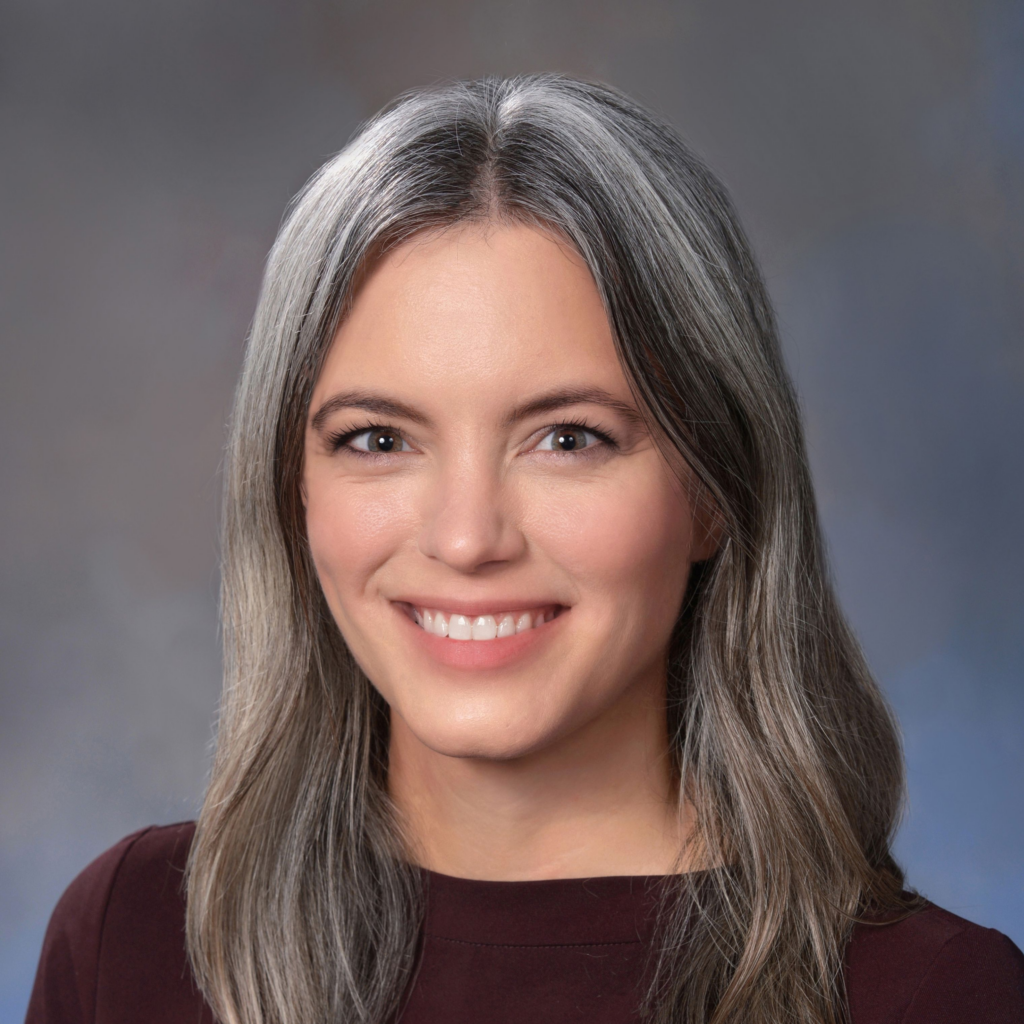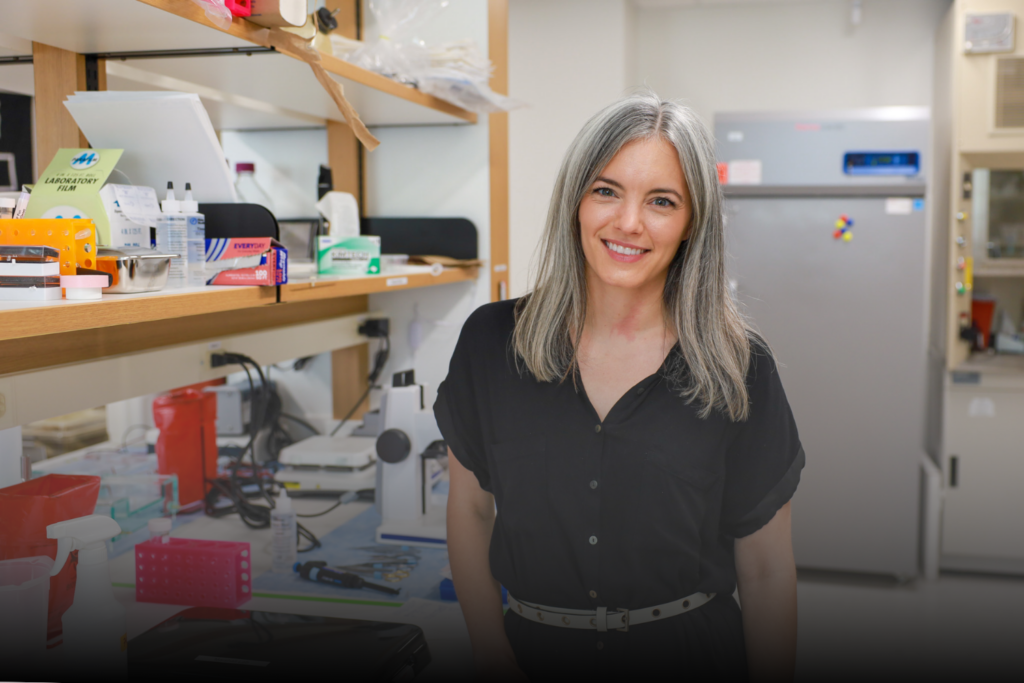DECIPHERING THE NERVOUS SYSTEM’S SECRETS
Asking Unexpected Questions to Better Understand the Nervous System
As a field, neuroscience—the study of the structure, function and development of the brain and nervous system—seems impossibly lofty. There are so many questions surrounding how raw stimuli are or are not translated into electric signals that shape the mind, how the mind can or can’t control a physical body. And then there are questions like: “How does a mind recognize that its body is hungry?”
For Kara Marshall, M.S. ’10, Ph.D., physical sensations have always been intriguing. Today, Dr. Marshall is a pioneer studying interoception, the ability to sense and interpret signals from within one’s body apart from the five major senses. Such signals like hunger, the need to urinate or internal organ pain caused by food poisoning have been overlooked within neuroscience despite their essential functions.
“A lot of the things that are important about interoception, these internal senses, are things we take for granted.” Dr. Marshall said. “All of these systems are working without our attention, and yet we know so little about them. There’s so much to discover, and it impacts so many different diseases and conditions. If any one of these systems breaks, we need to understand the fundamentals of how these signals work to fix it.”
Dr. Marshall’s bold, off-the-beaten-path research has made waves, attracting the attention and support of several prestigious funding organizations, including the Howard Hughes Medical Institute (HHMI), The Pew Charitable Trusts and The Robert and Janice McNair Foundation, which awarded her the seed funding to set up her own lab at Baylor and expand her efforts.
“The McNair family is committed to giving bright, young physician-scientists the tools to advance health by examining the unexamined,” said Meghan Blanton, president of The Robert and Janice McNair Foundation. “As a McNair Scholar, Dr. Marshall is conducting groundbreaking work in a relatively uncharted subject.”
Dr. Marshall holds an appointment as a Howard Hughes Medical Institute Freeman Hrabowski Scholar. Scholars prioritize scientific excellence in their own research while creating an inclusive lab climate that serves as a model within their own institution and beyond. Each Scholar receives up to $8.6 million over the ten-year period, including full salary, benefits, a research budget and scientific equipment.
“With her commitment to asking unexpected but critical questions and cultivating an atmosphere of collaboration and inclusion in the lab, Dr. Marshall is an excellent example of the kind of scientist the Freeman Hrabowski Scholars Program was designed to support,” HHMI Vice President and Chief Scientific Officer Leslie Vosshall said.
Ana-Rita Mayol, Ph.D., project director of Pew Biomedical Programs, added: “The Pew Charitable Trusts is proud of its investment in outstanding researchers like Dr. Marshall. By supporting researchers with not only resources but also a network of similarly brilliant individuals from different backgrounds, we aim to empower them to creatively examine big questions and deliver the answers needed to improve health.”
FEATURED FACULTY

Kara Marshall, M.S. ’10, Ph.D.
Assistant Professor
Department of Neuroscience
McNair Scholar



